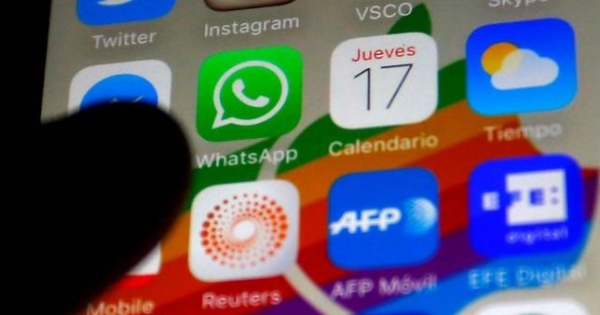
Thousands of protesters cut off roads and burned debris in Beirut on Thursday, as anger over plans to impose a levy on WhatsApp calls turned into demands for the government to resign and hold early elections.
Crowds of people converged in the center of Beirut, where the parliament and government buildings are located, and called on politicians to now debate a proposed austerity budget to resign.
Economic risks have rarely been greater for Lebanon – a small country stretching between the flawed geopolitical borders of the Middle East – since the end of the 15-year civil war in 1990. One of the world’s most indebted countries is struggling to find new sources of funding as the foreign inflows on which it has traditionally depended have run out.
The International Monetary Fund projects that Lebanon’s current account deficit will reach nearly 30% of gross domestic product by the end of this year. It predicts that economic growth, stagnant at 0.3% in 2018, would continue to be weak amid political and economic uncertainty and a severe contraction in the real estate sector.
Sporadic demonstrations have been erupting for months, as the economic crisis has caused a shortage of dollars and threatened pensions, even of retired soldiers.
Plans to impose a us-than-a-half-dollar 20-cent tariff on the first WhatsApp call that users make every day dominated airwaves throughout Thursday, in a country where communications costs are among the the world’s least competitive and people use Internet voice apps extensively to save money. WhatsApp, a free messaging and voice platform, owned by Facebook Inc., has about 1.5 billion users worldwide.
The government is under pressure to reduce spending, raise taxes and combat corruption, conditions required by international donors to unlock some $11 billion in pledges. But the measures are proving to be deeply unpopular with the public. Critics say institutional corruption, nepotism and policy speculation are bankrupting the government.
As the protests spread to suburbs and provinces, the telecommunications minister, Mohamed Choucair, called on LBC television to say that the prime minister, Saad al-Hariri, had ordered him to cancel the tariff. But the reversal came too late to appease public opinion.
"El reclamo puede ser genuino, pero construido sobre una mentira", apuntó el presidente Javier Milei…
El gobernador de la provincia de Buenos Aires, Axel Kicillof, encabezó un acto en Ensenada…
El diputado nacional de La Libertad Avanza, José Luis Espert, expresó su confianza en la…
Tras la masiva reaparición de Cristina Fernández de Kirchner, el presidente Javier Milei apuntó contra…
El principal propósito de la nueva comisión es evaluar los recursos humanos en el Senado,…
En una medida que busca redefinir las condiciones de los seguros de automóviles en Argentina,…
Esta web usa cookies.